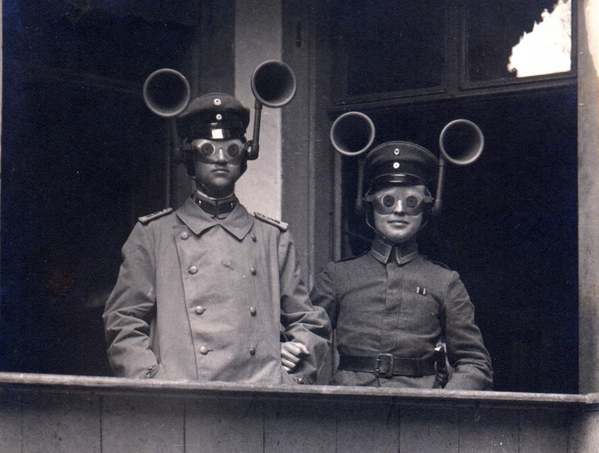
Posted on 12/11/2024 9:18:50 PM PST by Red Badger
Around 15 percent of the world's population suffers from tinnitus, a condition which causes someone to hear a sound (such as ringing or buzzing) without any external source. It's often associated with hearing loss.
Not only can the condition be annoying for sufferers, it can also have a serious effect on mental health, often causing stress or depression. This is especially the case for patients suffering from tinnitus over months or years.
There's currently no cure for tinnitus. So finding a way to better manage or treat it could help many millions of people worldwide.
And one area of research that may help us better understand tinnitus is sleep. There are many reasons for this.
First, tinnitus is a phantom percept. This is when our brain activity makes us see, hear or smell things that aren't there. Most people only experience phantom perceptions when they're asleep. But for people with tinnitus, they hear phantom sounds while they're awake.
The second reason is because tinnitus alters brain activity, with certain areas of the brain (such as those involved in hearing) potentially being more active than they should be. This may also explain how phantom percepts happen. When we sleep, activity in these same brain areas also changes.
Our recent research review has identified a couple of brain mechanisms that underlie both tinnitus and sleep. Better understanding these mechanisms – and the way the two are connected – could one day help us find ways of managing and treating tinnitus.
Sleep and tinnitus
When we fall asleep, our body experiences multiple stages of sleep. One of the most important stages of sleep is slow-wave sleep (also known as deep sleep), which is thought to be the most restful stage of sleep.
During slow-wave sleep, brain activity moves in distinctive "waves" through the different areas of the brain, activating large areas together (such as those involved with memory and processing sounds) before moving on to others.
It's thought that slow-wave sleep allows the brain's neurons (specialized brain cells which send and receive information) to recover from daily wear and tear, while also helping sleep make us feel rested. It's also thought to be important for our memory.
Not every area of the brain experiences the same amount of slow-wave activity. It's most pronounced in areas we use most while awake, such as those important for motor function and sight.
But sometimes, certain brain areas can be overactive during slow-wave sleep. This is what happens in sleep disorders such as sleep walking.
A similar thing may happen in people with tinnitus. We think that hyperactive brain regions might stay awake in the otherwise sleeping brain. This would explain why many people with tinnitus experience disturbed sleep and night terrors more often than people who don't have tinnitus.
Tinnitus patients also spend more time in light sleep. Simply put, we believe that tinnitus keeps the brain from producing the slow-wave activity needed to have a deep sleep, resulting in light and interrupted sleep.
But even though tinnitus patients have less deep sleep on average than people without tinnitus, the research we looked at in our review suggests that some deep sleep is hardly affected by tinnitus. This may be because the brain activity that happens during the deepest sleep actually suppresses tinnitus.
There are a couple of ways the brain may be able to suppress tinnitus during deep sleep. The first has to do with the brain's neurons. After a long period of wakefulness neurons in the brain are thought to switch into slow-wave activity mode to recover. The more neurons in this mode together, the stronger the drive is for the rest of the brain to join.
We know that the drive for sleep can get strong enough that neurons in the brain will eventually go into slow-wave activity mode. And since this especially applies to brain regions overactive during wakefulness, we think that tinnitus might be suppressed as a result of that.
Slow-wave activity has also been shown to interfere with the communication between brain areas. During deepest sleep, when slow-wave activity is strongest, this may keep hyperactive regions from disturbing other brain areas and from interrupting sleep.
This would explain why people with tinnitus can still enter deep sleep, and why tinnitus may be suppressed during that time.
Sleep is also important for strengthening our memory, by helping to drive changes in connections between neurons in the brain. We believe that changes in brain connectivity during sleep are contributing to what makes tinnitus last for a long time after an initial trigger (such as hearing loss).
Treating tinnitus
We already know that intensity of tinnitus can change throughout a given day. Investigating how tinnitus changes during sleep could give us a direct handle on what the brain does to cause fluctuations in tinnitus intensity.
It also means that we may be able to manipulate sleep to improve the wellbeing of patients – and possibly develop new treatments for tinnitus.
For example, sleep disruptions can be reduced and slow-wave activity can be boosted through sleep restriction paradigms, where patients are told to only go to bed when they're actually tired. Boosting the intensity of sleep could help us better see the effect sleep has on tinnitus.
While we suspect that deep sleep is the most likely to affect tinnitus, there are many other stages of sleep that happen (such as rapid eye movement, or REM sleep) – each with unique patterns of brain activity.
In future research, both the sleep stage and tinnitus activity in the brain could be tracked at the same time by recording brain activity. This may help to find out more about the link between tinnitus and sleep and understand how tinnitus may be alleviated by natural brain activity.
Linus Milinski, Doctoral Researcher in Neuroscience, University of Oxford; Fernando Nodal, Departmental Lecturer, Auditory Neuroscience Group, University of Oxford; Victoria Bajo Lorenzana, Associate Professor of Neuroscience, University of Oxford, and Vladyslav Vyazovskiy, Professor of Sleep Physiology, University of Oxford.
This article is republished from The Conversation under a Creative Commons license. Read the original article.
An earlier version of this article was published in May 2022.

 CAN YOU HEAR ME NOW?........................
CAN YOU HEAR ME NOW?........................
Interesting...
You do post the most wonderful threads.
Great! Two days ago, Conservative Mind posted an article linking Age Related Macular Degeneration to sleep apnea. Now Tinnitus is related to sleep apnea. I have sleep apnea and both AMD and tinnitus. Lucky me!

Quick! Tell RedBadger to stop posting these health threads. You don’t need to catch any more problems and, clearly, his threads are the cause.
There can be mechanical reasons for it. For example, a special type of MRI might show something pressing up against an ear nerve.
Thanks for the thoughtful post! For me, my tinnitus is probably the result of working around six 155 howitzers that fired hundreds of rounds a day. I-Corps, 1966-1967. Semper Fi.
William Shatner aka Captain Kirk has suffered from Tinnitus for years after a premature explosion went off next to him while filming the original series episode “Arena” where he fought the Gorn lizard. If you watch the episode in the beginning you can see when it happens. He and Spock are pinned down taking refuge. Kirk takes off running and an explosion prematurely goes off and he’s completely stunned and falls to his knees and they quickly go to edit. See it here at the 2:30 mark and beyond.
https://youtu.be/hGHcc-OW2Jw?si=xPs4bYQE17uZ5Jo0
Shatner discussing his Tinnitus.
https://youtu.be/E7bL9BhESYA?si=SC7hXz1XCrS8r0dG
Thanks for posting this.
That would explain a few things in my case.
This has been the case for over 20 years (I'm 72). What keeps me from losing my mind completely are a few important things (in no particular order)
Mine sounds exactly like millions of crickets or locusts on a summer night. I haven’t heard silence in 50 years or more.
I wear hearing aids in both ears, very expensive programmable types I got from the VA. But they aren’t perfect, as they feedback all the time and drives my wife crazy because she can hear it but I can’t, too high a frequency.
Welcome home, brother.
I have tinnitus in my right ear. I think mine was the result of firing an M-60 too much without ear plugs in I-Corps, 1971-72. (101st Airborne.)
LOL...yeah! That’s the root cause of all my problems! Thanks for figuring that out, doc.
Anytime, POF. Just like Snoopy, the doctor is always in. 5 cents or a clever retort.
 Semper Fi!.......................
Semper Fi!.......................
I hear ya there, brother (no pun intended). I'd give a lot for just a few minutes of silence.
The first time I wore my first set of really good hearing aids, I heard my daughter's voice clearly for the first time in our lives. I broke down crying, her voice was so pretty, and I'd never really heard it before.
That evening (it was summer) I turned the hearing aids volume way up and walked out into my yard, and for the first time in many years, I heard the crickets -- the real ones, not the tinnitus ones. The hearing aids gain allowed the real crickets to outmatch the tinnitus. It was a revelation. The next day I did the same thing and heard the local songbirds for the first time.
Changed my life.
I don't know what to say about the feedback you experience. Mine feed back if I've got them turned way up and I put my hand near my ear. So maybe it's something about how yours are mounted in your ear, how you wear you hair (if it's long enough to cover your ears), or even a high collar on a shirt? Just thinking out loud....
Could be something as simple as impacted ear wax.
Disclaimer: Opinions posted on Free Republic are those of the individual posters and do not necessarily represent the opinion of Free Republic or its management. All materials posted herein are protected by copyright law and the exemption for fair use of copyrighted works.